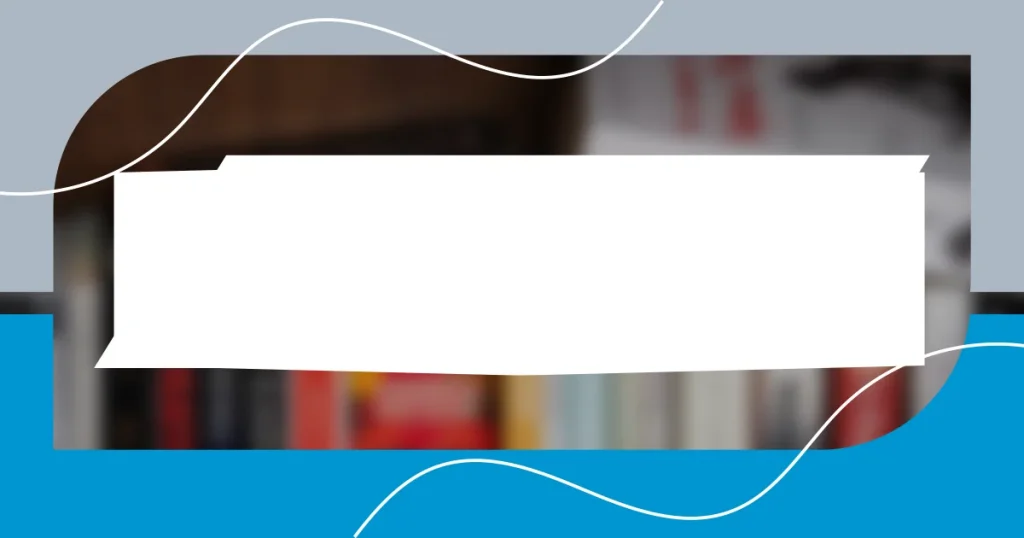Key takeaways:
- Engaging with various genres, such as poetry and scriptwriting, has enhanced the author’s understanding of emotional depth, character development, and the importance of clarity in writing.
- The author has identified personal preferred genres—fiction, non-fiction, and poetry—that resonate deeply with their creative spirit and experiences, allowing for meaningful storytelling.
- Creating a flexible writing schedule that incorporates breaks and spontaneity has proven essential for maintaining creativity while effectively switching between genres.
Understanding genre writing experiences
Understanding the nuances of genre writing has been a transformative experience for me. Each genre, from fiction to non-fiction, offers its own set of rules and emotional landscapes to explore. I often find myself asking, “What story do I really want to tell?” This question guides me as I dive deeper into a specific genre, pushing me to uncover insights that resonate with my audience.
I remember the first time I ventured into poetry. The freedom of expression felt exhilarating, yet daunting. I struggled to condense my thoughts into such tight language. It was a challenge that forced me to pay attention to every word, every pause, and every emotion. I relished the process of experimenting with form and feeling — I discovered how even a few lines could evoke profound imagery and stir deep emotions in readers.
Navigating different genres more recently, I’ve realized how each one reshapes my perspective as a writer. Writing for children, for example, taught me about simplicity and clarity. I always reflect on how children view the world; their questions are direct and often profound. I remember crafting a story that was so simplistic yet carried layers of meaning, captivating not just the kids but their parents too. It’s incredible how understanding genre can transform your writing; it breathes life into your words and connects with diverse audiences, nurturing a deeper understanding of the human experience.
Exploring different writing styles
Exploring different writing styles has opened up a realm of possibilities for me. When I ventured into scriptwriting, I discovered how crucial dialogue is in creating tension and building character. I still recall one scene where minimal words conveyed a deep emotional rift between characters—it was a breakthrough moment, proving how less can often speak volumes.
My experience with writing essays illuminated another facet of style. The analytical nature of essays calls for a structured approach where clarity reigns supreme. I remember grappling with an argument on a complex topic; I had to dissect the information meticulously, ensuring each point was not just informative but compelling. This experience taught me the power of logic intertwined with emotion, enhancing my ability to persuade and engage readers effectively.
Poetry, on the other hand, is an art of its own. I discovered that each line is like a brush stroke on a canvas, painting vivid pictures with rhythm and imagery. The first poem I wrote about a fleeting moment in nature was a revelation; with just a handful of carefully chosen words, I was able to encapsulate a fleeting feeling that still resonates deeply with me. This journey through diverse styles has enriched my writing arsenal, enabling me to deeply connect with readers across various contexts.
| Writing Style | Key Features |
|---|---|
| Scriptwriting | Focus on dialogue, emotional tension, visual storytelling. |
| Essay Writing | Structured, analytical, persuasive argumentation. |
| Poetry | Imagery, rhythm, emotional depth through concise language. |
Identifying my preferred genres
Identifying my preferred genres has been a rewarding journey of self-discovery. I found that my affinity for storytelling often lies in the realms where imagination meets reality. Unraveling what captivates my spirit in writing has allowed me to align my creative energy with these genres:
- Fiction: Engaging with complex characters and intricate plots provides an escape into worlds of my own making.
- Non-Fiction: I enjoy unraveling truths, sharing knowledge, and connecting with readers on real-world topics.
- Poetry: The condensed beauty of language sparks joy, letting me express profound feelings in a few short lines.
As I explored various genres, I began to understand what genuinely resonates with me as a writer. Writing memoir allowed me to delve into my past, weaving personal experiences into narratives that refuse to fade away. There was a moment of reflection when I revisited childhood memories to craft a piece. The nostalgia surged through me, reminding me of the power of genuine storytelling. The genres that speak to me are those that encompass both my passion and experience, allowing me to communicate effectively and meaningfully.
Creating a versatile writing schedule
Creating a versatile writing schedule has significantly impacted my ability to juggle different genres effectively. I remember a time when I spread my writing tasks over the week, dedicating specific days to fiction, non-fiction, and poetry. This not only kept my creativity fresh but also allowed me to dive deep into each genre without feeling overwhelmed. Have you ever felt that spark when you switch your focus? I find that shifting my writing gears invigorates my creativity in unexpected ways.
To stay organized, I often use a simple spreadsheet that outlines my writing goals for each genre. I assign deadlines that are realistic yet challenging, helping me maintain momentum without becoming stagnant. I’ve learned to embrace flexibility within my schedule, allowing room for spontaneity. Sometimes, I’ll wake up with a burning need to write poetry, and thanks to my adaptable plan, I can make room for that burst of inspiration.
Another key aspect is incorporating breaks and self-care into my writing routine. I discovered that stepping away from the page can rejuvenate my mind, leading to deeper insights and fresh perspectives. My most productive writing moments often follow long walks where I let my thoughts wander. It’s a reminder that a versatile writing schedule isn’t just about quantity; it’s about nurturing creativity. How do you recharge when you feel stuck? Finding what inspires you can transform your writing experience.
Overcoming challenges in genre switching
Switching between genres can be a thrilling adventure, but it certainly comes with its hurdles. I remember feeling a little lost when transitioning from the structured nature of non-fiction to the fluid world of poetry. The first time I tried to write a poem after researching a complex topic, I felt as though I was speaking two different languages at once. Have you ever felt such a stark contrast between the precision of facts and the freedom of artistic expression? It took time, but embracing the differences in tone and style helped me find a unique voice that combines both clarity and creativity.
There were moments of doubt, especially when facing writer’s block. I distinctly recall a day when I was stuck trying to morph a fictional character into a real-world persona for a non-fiction piece. Frustrated, I stepped outside for a breath of fresh air, which sparked an idea. That moment taught me the importance of giving myself permission to pause. I realized that overcoming these challenges sometimes just requires a change in perspective. When was the last time you stepped away from your writing to gain clarity?
Ultimately, it’s about allowing each genre to inform the other, smoothing out the edges of my creative process. For instance, I’ve found that applying narrative techniques from fiction tends to enrich my non-fiction storytelling. It’s fascinating how these creative threads often weave together, revealing deeper insights. I can’t help but wonder: how has genre-switching broadened your writing landscape? Engaging with this question has deepened my understanding of my craft, reminding me that every challenge is simply an opportunity in disguise.
















